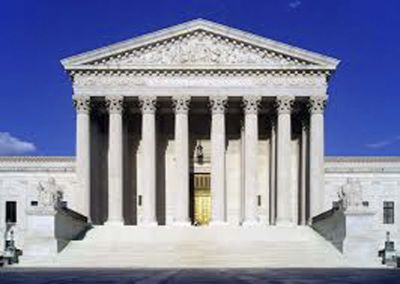
A thin majority of the US Supreme Court decided late yesterday that traditional prayers at the beginning of town council and similar legislative sessions may continue. http://www.reuters.com/article/2014/05/05/us-usa-court-prayer-idUSBREA440FO20140505
In Greece, New York, two residents attending a legislative session felt “uncomfortable” when an opening prayer mentioned Jesus Christ and the Holy Spirit. So in 2008 they sued to make their legislators stop that sectarian practice, arguing that the US Constitution only permits nonsectarian prayers or moments of silent reflection. http://www.nydailynews.com/news/national/supreme-court-ruling-prayer-town-council-meeting-article-1.1779924
In disagreeing with those two residents, five of the six Roman Catholic justices on the US Supreme Court overruled three Jewish justices and one Roman Catholic justice to let the legislators keep praying, so long as no prayer tries to intimidate, coerce or convert anyone. The court’s basic logic arose from American history in which prayers have been offered since the beginning of the nation. To rule that only nonsectarian prayers should be permitted would make the legislatures and courts the supervisors and censors of religious speech, said Justice Kennedy, the swing vote on the Court and author of its majority opinion. http://www.nytimes.com/2014/05/06/nyregion/supreme-court-allows-prayers-at-town-meetings.html?_r=0
To analysts at HamiltonFinanceServices.com, the decision while welcomed by many conservatives nationwide, sounds almost out of character for the high court. This observation implies that more decisions in the future might whittle away and eventually change the court’s acceptance of historic tradition as the logic for what the Constitution permits. Yet, for a few decades at least, prayers at local town council meetings will keep coming, and those opposed to sectarian prayers in public meetings will simply be required to ignore what they cannot change. What do you think?

